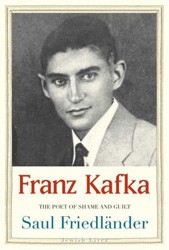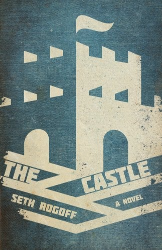If Kafka’s writings at first read appear to be secular and/or satirical of Jews, Iris Bruce shows us otherwise. Bruce says, “…it is my contention that Kafka did not repress half as much as critics have assumed and that his literature contains more contemporary social reality than is generally acknowledged.”
Raised in a family of assimilated, prosperous Jews, Kafka knew little about tradition or ritual. It was his father’s plan to keep an “ambiguous cultural affiliation to protect his family from anti-Semitic riots.” We read that Kafka, over time and with extensive study, exposure to rich folkloric tradition via the Yiddish theatre, and personal introspection, developed a sense of identity to Judaism and then Zionism, with an unfulfilled wish to emigrate to Palestine. We are shown that “ultimately, it was not religious faith or ritual that Kafka wanted. He cared about people and being part of a community.” His was a cultural, humanist Zionism.
In seven distinct sections, set in and around Prague, we meet his family, his friends, colleagues, and the full spectrum of Jews in Czechoslovakia and Eastern Europe at the turn of the century. This scholarly volume, with meticulous documentation, does require some prior knowledge of Kafka’s writing and the intellectual circles in which he traveled. Abbreviations, index, notes, works cited.





